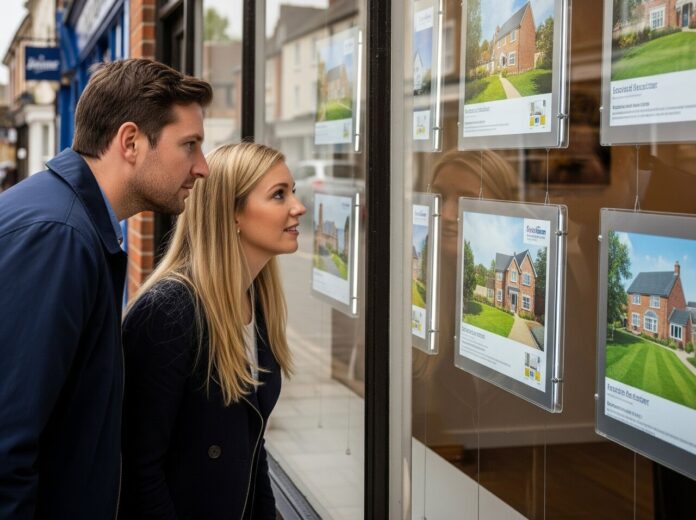The latest RICS UK Residential Market Survey points to continued softness in the housing market, with buyer demand and agreed sales both struggling for momentum.
However, sentiment on the short-term outlook is showing tentative signs of improvement, with respondents anticipating a more stable environment in the coming months.
For May, a net balance of -26% was reported for new buyer enquiries, making it the fifth consecutive month of negative readings. While still weak, the figure is a modest improvement on the -32% reported in March and April. The measure for agreed sales also remained in negative territory at -28%, virtually unchanged from the previous month’s -30%.
Yet, looking ahead, agents and surveyors appear slightly less pessimistic. The three-month sales expectations indicator moved up to -5%, from -13% in April, indicating a possible levelling off in activity. Further out, a net balance of +25% of respondents expect sales to increase over the next twelve months – the most upbeat assessment since February.
Supply-side indicators remain more encouraging. A net balance of +7% reported a rise in new sales instructions, continuing a run of positive readings that now stretches back eleven months. There is also evidence of a robust pipeline, with a net balance of +19% saying they conducted more market appraisals in May than during the same period last year.
House prices, meanwhile, are showing signs of stagnation. The national net balance fell to -8%, the weakest reading since July 2024, and a continuation of the slide from a high of +25% last December. However, this headline figure still suggests a broadly flat pricing environment. The regional picture is more mixed. In East Anglia and the South West, net balances of -34% and -31% respectively point to steeper declines, while in Northern Ireland, prices continue to rise sharply, with a net balance of +92%.
Expectations for house prices in the near term remain slightly negative, with a net balance of -12%. Nevertheless, this is a notable improvement from the -26% and -20% recorded in March and April. Looking 12 months ahead, 34% of respondents expect prices to rise, down slightly from the previous month’s 39%.
Commenting on the sales environment, Jeremy Leaf, a north London estate agent and former RICS residential chairman, said: “There seems little doubt we’re seeing a ‘bottom’ to the market. Activity dropped as so many transactions were brought forward to take advantage of the stamp duty holiday which ended on 31st March. As a result, prices have softened but not fallen significantly.
“Since then, the market has been in recovery mode, settling into a new normal. Existing transactions are not generally falling through but are more protracted. Buyers are even more in control, negotiating hard and taking their time before deciding on an enviable choice of properties – particularly flats.”
In the lettings market, tenant demand appears to be regaining strength. The net balance rose to +22%, the highest level since September 2024. At the same time, supply constraints continue to weigh on the sector. A net balance of -34% of respondents reported a decline in landlord instructions, prolonging a trend of falling rental stock.
As a result, rental price expectations have surged, with a net balance of +43% of contributors anticipating increases over the coming three months – the strongest result since October 2023.
Leaf noted: “Listings have continued their steady decline without dropping sharply which has helped support rents. Many landlords are waiting to see when the Renters’ Rights Bill is likely to become law before deciding whether to sell.
“However, we have also noticed too there is an affordability limit on rents – particularly for flats – which most tenants won’t breach, prompting landlords to cut their cloth accordingly.”



